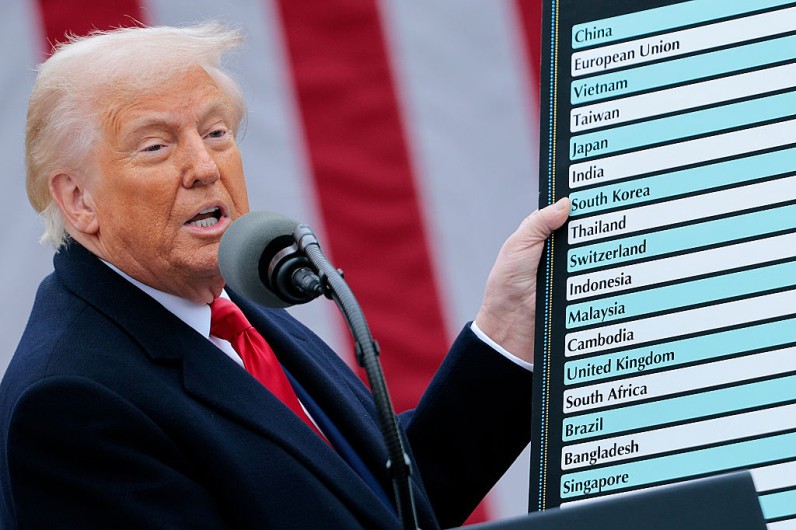
The Trump administration announced Thursday that it has reached new trade frameworks with Argentina, Ecuador, El Salvador, and Guatemala, aiming to expand market access for US companies and cut tariffs on key goods.
While the agreements are not yet final, officials say they are expected to be signed within the next two weeks.
The goal, they explained, is to help American farmers and manufacturers sell more products abroad while easing some costs for US consumers.
A senior administration official, speaking on background, said the frameworks are designed to "increase the ability of US firms to sell industrial and agricultural products" in these four countries, AP News reported.
The plans include lowering tariffs, removing import licenses, and preventing digital services taxes on US tech companies.
The agreements are part of President Donald Trump's broader effort to reshape global trade rules using tariffs as leverage.
Argentina's President Javier Milei called the deal "tremendous news," noting that it marks the country's first trade framework with the US in nearly a decade.
"As you can see, we are strongly committed to making Argentina great again," he said, signaling strong support for the partnership.
President Trump’s leadership is helping forge a new age of partnership and prosperity across the Western Hemisphere, announcing Joint Statements with El Salvador, Argentina, Ecuador, and Guatemala for Frameworks for Agreements on Reciprocal Trade.
— United States Trade Representative (@USTradeRep) November 13, 2025
These historic deals will lower… pic.twitter.com/GsY5Dpmeln
Trump Administration Aims to Lower Grocery Costs
According to CBS News, under tariffs announced in July, goods from Argentina, El Salvador, and Guatemala currently face a 10% tax, while imports from Ecuador face a 15% tax.
These new frameworks would not erase those duties altogether but would allow certain items to bypass them.
Guatemala's President Bernardo Arévalo said 70% of Guatemala's exports to the US will face zero tariffs once the agreement takes effect.
"This is good news," he said, adding that the move could bring new investment into his country.
US officials noted that products like coffee, cocoa, and bananas—items the US does not produce in large quantities—are likely to receive tariff relief.
"Our expectation is that there will be some positive effects for prices for things like coffee, cocoa, bananas," one official said, adding that these changes could help Americans dealing with high grocery costs.
The frameworks also require participating countries to streamline import processes and resolve issues involving intellectual property rights. In return, the US would lift reciprocal tariffs on certain goods that cannot be "grown, mined, or naturally produced" in the US
These new agreements come as the Trump administration continues to negotiate trade partnerships with other major markets, including the European Union, Japan, Vietnam, and the United Kingdom.







Join the Conversation